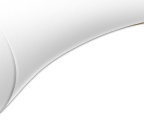|

General
Anesthesia and the phobic dental patient
Dr. Jerry
Gordon
Some people are so fearful of the dentist that they avoid dental care at all costs. These patients are considered
dental phobics, and may sometimes require sedation or general anesthesia (being put to sleep) to have their dental treatment completed. Sedation and general anesthesia can be very useful for highly phobic patients, during advanced oral surgical procedures (i.e. removal of impacted wisdom teeth), and for those with certain physical and mental handicaps, but should be viewed as a last resort for most patients seeking general dental treatment.
People with dental fears and phobias have many different reasons for their feelings. The vast majority will recall a past traumatic experience during a dental visit, and others fear being confronted by a dentist about the condition of their mouths. Negative dental stories told by family, peers, on the evening news and in advertisements can compound the fear and anxiety that these patients have. People with dental fears and phobias may be difficult for a dentist to treat. These patients will often schedule and then cancel appointments, abuse over-the-counter medications, and use any possible means to avoid dental treatment. Unfortunately, these patients put themselves at risk for serious dental infections, and often suffer from low self-esteem due to the appearance of their teeth.
Although patients with dental fears and phobias may present a challenge for some dentists, I believe that most of these patients can be treated without general anesthesia or sedation. A dentist who is open, caring, and listens to their patient´┐Żs needs and fears can begin to effectively treat the anxious or phobic patient. The dentist can also employ new potent local anesthetics, air abrasion, nitrous oxide (laughing gas), relaxation techniques, and many other methods to help a patient overcome their fears.
General anesthesia and sedation are appropriate for patients receiving advanced oral surgical procedures, and those with certain physical and mental handicaps, but should be reserved for only a small minority of highly phobic dental patients. General anesthesia and sedation are considered safe and effective, but cost more and may pose an increased health risk for some patients.
Dr. Jerry Gordon can be reached at 215-639-0571. Comments, questions, and second opinions are available at The Dental Comfort Zone, 2734 Street Rd. Bensalem, PA., across from the Giant supermarket. To learn more:
www.dentalcomfortzone.com E-mail: [email protected].
READY to JOIN?
AmeriPlan´┐Ż
Click to Sign-up

AmeriPlan´┐Ż
Business Owner - Work
at Home Based Business Opportunity

| |


